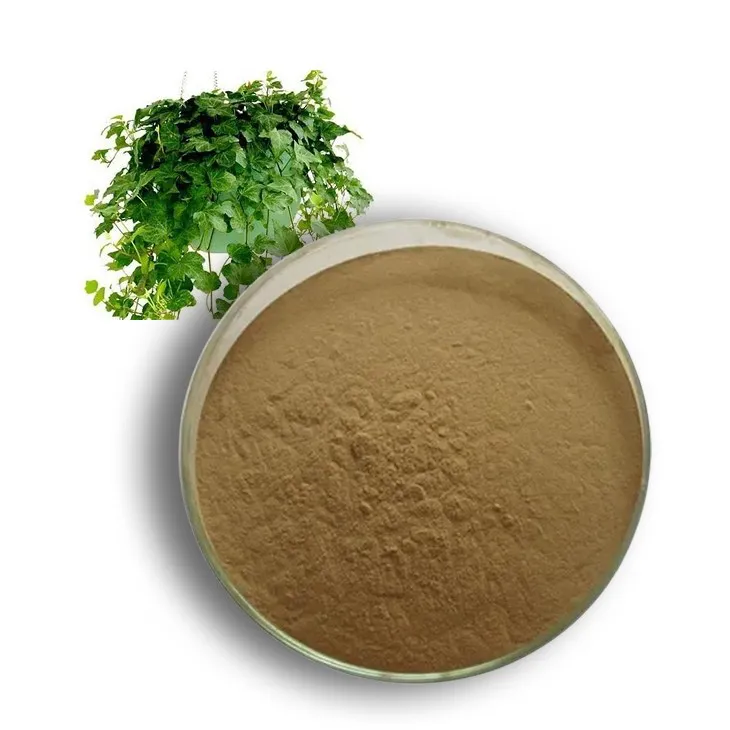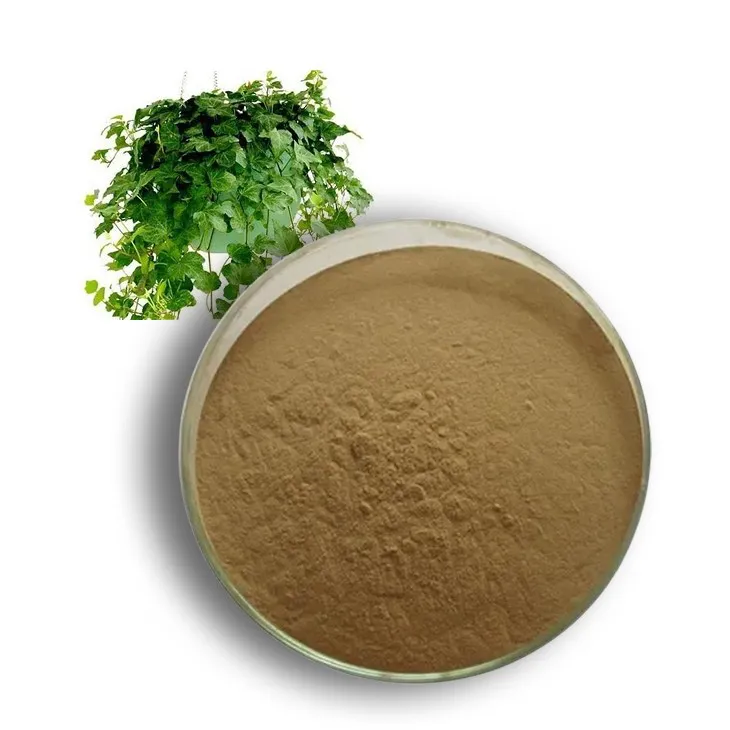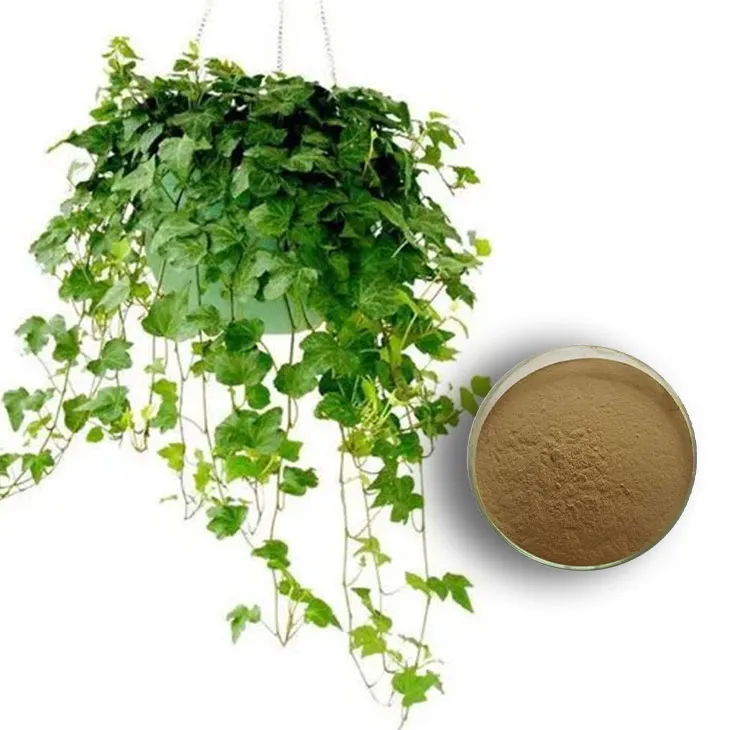- 0086-571-85302990
- sales@greenskybio.com
Trace - component organic ivy extract.
2024-11-29

1. Introduction
Organic Ivy Extract, particularly its micro - components, has emerged as a subject of significant attention in various fields. These minute constituents within the extract possess a wide range of potential applications that are yet to be fully explored. The unique properties of these micro - components make them a valuable resource for different industries, from food and beverage to agriculture and pharmaceuticals.

2. Role in the Food and Beverage Industry
2.1 Flavor - enhancing Properties
The compounds present in the organic Ivy Extract have the potential to be excellent flavor - enhancers. In a market where consumers are increasingly inclined towards products with natural flavors, these components can provide a distinct and appealing taste. They can add a depth and complexity to the flavor profile of food and beverage items that is often lacking in products relying solely on artificial flavorings. For example, in the production of certain fruit - flavored beverages, the addition of Ivy Extract micro - components can bring out a more authentic and nuanced fruit taste, enhancing the overall sensory experience for the consumer.
2.2 Preservative Qualities
Another important aspect of the micro - components in organic ivy extract is their possible preservative capabilities. Many food products have a limited shelf - life due to spoilage caused by microbial growth, oxidation, or other chemical reactions. The compounds in the ivy extract may act as natural inhibitors of these deteriorative processes. Natural preservatives are highly sought - after as they can offer an alternative to synthetic preservatives, which some consumers may be averse to due to concerns about potential health risks. For instance, in the case of bakery products, the use of ivy extract micro - components could potentially extend their freshness and prevent the growth of mold, thus reducing food waste.

3. Role in the Agricultural Sector
3.1 Plant Protection
The organic ivy extract may prove to be a valuable asset in plant protection. As the demand for sustainable agricultural practices grows, there is a need for alternative methods to control pests and diseases. The extract could potentially function as a natural pesticide or fungicide. By studying its chemical composition and understanding how it interacts with pests and fungi, farmers could incorporate it into their pest management strategies. For example, in the cultivation of vegetables, the application of ivy extract might help protect the plants from common fungal infections, such as powdery mildew, without the need for harsh chemical fungicides. This would not only safeguard the health of the plants but also contribute to a more environmentally - friendly farming system.

4. Role in Pharmaceutical Research
4.1 Source of New Drugs
The bioactive micro - components of ivy extract hold great promise as a source of new drugs. The chemical structures of these components are often unique, and they may interact with biological targets in novel ways. In the field of drug discovery, finding new molecules that can interact with previously untargeted or difficult - to - target biological pathways is crucial. The micro - components of ivy extract may offer such opportunities. For diseases that currently lack effective treatment options, such as certain neurodegenerative disorders or rare genetic diseases, these bioactive components could potentially be developed into novel therapeutics. For instance, some components may have the ability to modulate specific cellular signaling pathways involved in disease progression, opening up new avenues for treatment.
5. Chemical Makeup and Characterization
To fully understand the potential of the micro - components in organic ivy extract, it is essential to study their chemical makeup. The extract is likely to contain a complex mixture of various compounds, including alkaloids, flavonoids, terpenoids, and phenolic compounds. Each of these classes of compounds may contribute to the overall properties of the extract. Alkaloids, for example, are known for their diverse biological activities, and they may play a role in the pharmacological potential of the ivy extract. Flavonoids, on the other hand, are often associated with antioxidant and anti - inflammatory properties, which could be relevant in both the food and pharmaceutical applications of the extract. Through advanced analytical techniques such as chromatography and spectroscopy, scientists can identify and characterize these individual components, enabling a more in - depth understanding of their functions.
6. Mode of Action
Understanding the mode of action of the micro - components in organic ivy extract is crucial for their effective utilization. In the context of the food and beverage industry, if the flavor - enhancing properties are due to interactions with taste receptors, then identifying the specific receptors involved can help in optimizing the use of the extract. In plant protection, if the extract acts as a natural pesticide by interfering with the nervous system of pests, then this knowledge can be used to develop more targeted and effective pest control strategies. In pharmaceutical research, knowing how the bioactive components interact with biological targets at the molecular level can guide the design of new drugs. For example, if a component binds to a specific enzyme involved in a disease process, this information can be used to develop drugs that either enhance or inhibit the enzyme's activity.
7. Challenges and Limitations
7.1 Extraction and Purification
One of the main challenges in working with organic ivy extract is the extraction and purification of the micro - components. The extraction process needs to be optimized to obtain a high - yield of the desired components while minimizing the extraction of unwanted substances. Different extraction methods, such as solvent extraction, supercritical fluid extraction, or microwave - assisted extraction, may have their own advantages and disadvantages. Purification of the extract is also a complex task, as it often requires multiple steps to separate the different components. For example, in the case of obtaining pure bioactive compounds for pharmaceutical research, even a small amount of impurity can affect the results of pre - clinical and clinical trials.
7.2 Standardization
Another limitation is the lack of standardization in the production of organic ivy extract. Since the composition of the extract can vary depending on factors such as the plant source, extraction method, and environmental conditions, it is difficult to ensure consistent quality. In the food and beverage industry, this can lead to variations in flavor and preservative effectiveness. In the pharmaceutical industry, lack of standardization can pose significant challenges in drug development, as reproducibility of results is crucial. Establishing standardized protocols for extraction, purification, and quality control is essential to overcome this limitation.
8. Future Perspectives
The future of micro - component organic ivy extract research looks promising. With advancements in technology, it is likely that more efficient extraction and purification methods will be developed. This will enable a more comprehensive study of the individual components and their potential applications. In the food and beverage industry, there is potential for the development of new products with enhanced flavors and extended shelf - lives. In agriculture, the use of ivy extract as a natural plant protection agent could become more widespread, contributing to sustainable farming practices. In pharmaceutical research, continued exploration of the bioactive components may lead to the discovery of new drugs for various diseases. However, to realize these potential benefits, collaborative efforts between different disciplines, such as botany, chemistry, food science, and pharmacology, will be required.
FAQ:
What are the flavor - enhancing compounds in the organic ivy extract?
The article doesn't specifically name the flavor - enhancing compounds in the organic ivy extract. However, it does mention that there are some compounds in the extract that can add a unique and natural taste to food and beverage products. Further research would be needed to identify these specific compounds.
How effective are the preservative qualities of the organic ivy extract?
The text doesn't provide details on the effectiveness of the preservative qualities of the organic ivy extract. It only suggests that the micro - components might have preservative qualities which could be beneficial for extending the shelf - life of certain food items. More in - depth studies would be required to determine exactly how effective it is.
Can the organic ivy extract really replace synthetic pesticides and fungicides in agriculture?
The article indicates that the organic ivy extract may potentially act as a natural pesticide or fungicide. But it doesn't say for sure whether it can completely replace synthetic chemicals. While it could be an alternative, there are likely many factors to consider such as cost, application methods, and effectiveness against different pests and fungi. More research and field trials are necessary to answer this question.
What diseases could the bioactive micro - components of ivy extract potentially treat?
The passage only mentions that the bioactive micro - components of ivy extract could be a source of new drugs for diseases that are currently difficult to treat, but it doesn't name any specific diseases. The unique chemical structures of these components may interact with biological targets in new ways, but further pharmaceutical research is needed to determine which diseases they could potentially treat.
How can we further study the micro - component organic ivy extract?
To further study the micro - component organic ivy extract, various scientific methods can be employed. In the food and beverage industry, taste - testing and shelf - life experiments could be carried out. In agriculture, field trials to test its effectiveness as a pesticide or fungicide are needed. From a pharmaceutical perspective, in - vitro and in - vivo studies to explore its interaction with biological targets can be done. Additionally, advanced analytical techniques can be used to fully understand its chemical makeup.
Related literature
- The Chemical Components of Organic Ivy Extract and Their Applications"
- "Organic Ivy Extract in Food Preservation: A Comprehensive Review"
- "The Role of Organic Ivy Extract as a Natural Pesticide in Sustainable Agriculture"
- "Bioactive Compounds in Ivy Extract: Potential in Pharmaceutical Research"
- ▶ Hesperidin
- ▶ citrus bioflavonoids
- ▶ plant extract
- ▶ lycopene
- ▶ Diosmin
- ▶ Grape seed extract
- ▶ Sea buckthorn Juice Powder
- ▶ Beetroot powder
- ▶ Hops Extract
- ▶ Artichoke Extract
- ▶ Reishi mushroom extract
- ▶ Astaxanthin
- ▶ Green Tea Extract
- ▶ Curcumin Extract
- ▶ Horse Chestnut Extract
- ▶ Other Problems
- ▶ Boswellia Serrata Extract
- ▶ Resveratrol Extract
- ▶ Marigold Extract
- ▶ Grape Leaf Extract
- ▶ blog3
- ▶ blog4
-
Nature's Bounty Okra Extract.
2024-11-29
-
Chinese Oyster Peptide Powder Factories.
2024-11-29
-
The best organic L - carnitine.
2024-11-29
-
Certified organic acerola cherry extract.
2024-11-29
-
Wholesale β - carotene suppliers.
2024-11-29
-
Chinese lemon balm extract factories.
2024-11-29
-
100% Pure Organic Bitter Melon Extract.
2024-11-29
-
Sea buckthorn Juice Powder
2024-11-29
-
Lavender Extract
2024-11-29
-
Mango flavored powder
2024-11-29
-
Beetroot juice Powder
2024-11-29
-
Saffron Extract Powder
2024-11-29
-
Acerola Juice Powder
2024-11-29
-
Propolis Extract Powder
2024-11-29
-
Oyster Mushroom Extract Powder
2024-11-29
-
Elderberry Extract
2024-11-29
-
Boswellia Serrata Extract
2024-11-29





















